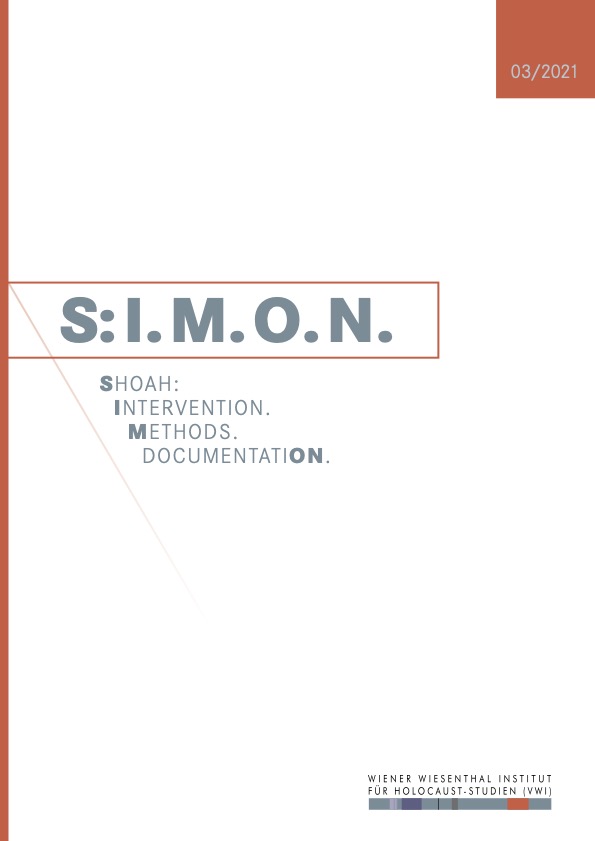Everyday Antisemitism in Interwar Latvia: University of Glasgow
Everyday Antisemitism in Interwar Latvia: University of Glasgow
Author(s): Paula Antonella OppermannSubject(s): WW II and following years (1940 - 1949), Fascism, Nazism and WW II, History of Antisemitism
Published by: Wiener Wiesenthal Institut für Holocaust-Studien
Keywords: Antisemitism;testimonies;oral history;xenophobia;Latvia;Eastern Europe;
Summary/Abstract: This article examines forms of antisemitism in interwar Latvia. Based mainly on testimonies from Jewish and non-Jewish witnesses, it investigates how exclusionary practices by non-Jews were expressed and impacted on people in their everyday life. Latvia had no antisemitic legislation in the 1920s and 1930s, but state structures facilitated societal antisemitism, which was more widespread than scholarship has recognised. The Jews in Latvia were affected regardless of societal standing, linguistic, or religious affiliation. Animosities existed among all ethnic groups to a degree, but attacks against Jews were of a different quality. Despite frequent interaction which sometimes turned into ‘inter-ethnic’ affection, the majority of society did not perceive the Jews as fellow compatriots.
Journal: S:I.M.O.N. Shoah: Intervention. Methods. Documentation.
- Issue Year: 8/2021
- Issue No: 3
- Page Range: 48-64
- Page Count: 17
- Language: English

